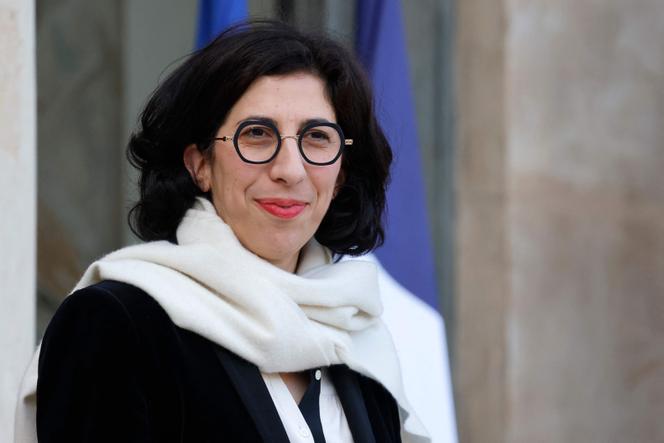


France's Culture Ministry rarely rocks the French government's boat, seeing as it has little weight, politically or budget-wise − which is what makes the events of the last few days all the more striking. Culture Minister Rima Abdul Malak has found herself in the eye of the storm due to the new immigration law and President Emmanuel Macron's tribute to the "great actor" Gérard Depardieu. She had two solid reasons to resign, but she stayed. Why?
At first, it was anything but a surprise to find Abdul Malak's name among the seven potential resignations from the government, given her left-wing, social-democrat image since her stint as an adviser to former Paris mayor Bertrand Delanoë, in the 2010s.
To those who question her left-wing credentials, the Rassemblement National (RN, far-right) regularly points them out, making Abdul Malak a recurring target. Media mogul Vincent Bolloré's companies also formed a harsh conspiracy against her in February. She is one of the few members of the government who has denounced the risk that the billionaire poses to freedom of opinion. She is also one of the few to take issue with what she describes as extreme right-wing remarks made on Bolloré's CNews channel, or on TV presenter Cyril Hanouna's daily talk show Touche pas à mon poste on C8.
The immigration law has a personal significance to Abdul Malak, given her background. Born in 1979 in Beirut, she spent 10 years in Lebanon before her family fled the civil war and settled in Lyon. She has retained her dual nationality from this period in her life, as well as the memory of her parents leaving their home "with tears in their eyes."
This story is told in a long post (no less than 592 words), both atypical and emphatic, which Abdul Malak published on Instagram on Wednesday, December 20. In it, she explains her refusal to resign, even as she lists four provisions in the immigration law that "offended" her convictions.
So why is she staying? First of all, she's counting on the Constitutional Council to censure a large part of the text − a curiosity common among Macronists. If the Council does not strike down certain provisions, it's hard to see how she can stay in her job.
Secondly, as she is neither an elected official nor a party official, she believes that being a minister is the most effective way to lead her fight against the far right, which she has made a priority. She is proud of a France that has welcomed Afghan and Ukrainian refugees and artists, just as it welcomed her own family, and she intends to cultivate these values.
You have 55% of this article left to read. The rest is for subscribers only.
